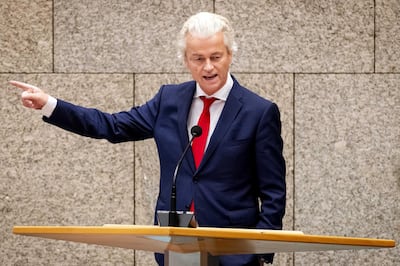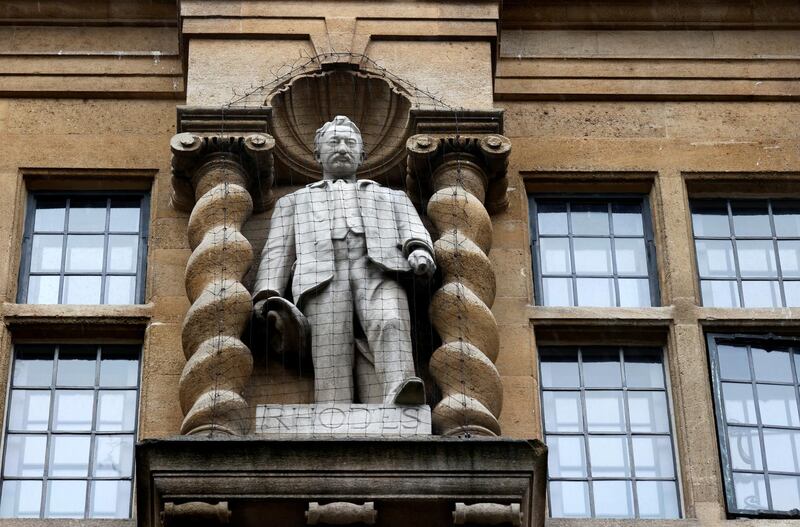In Europe, the Americas and beyond, hundreds of thousands have been gathering to demonstrate about racism past and present. A greater awareness of structural racism is certainly necessary, and if many are unaware of the brutality and exploitation carried out by the European colonial empires that is indeed shameful. It is right that curricula be amended.
We should debate historical figures such as Cecil Rhodes – although given that South Africa’s Nelson Mandela was willing to form the Mandela Rhodes Foundation in association with a trust named after a rapacious Victorian imperialist, we might perhaps do so with a little more nuance than the statue-topplers employ.
“What’s past is prologue,” as Shakespeare wrote. It is correct that we connect the dots between past wrongs and present day injustices. What is worrying, however, is that in all this discussion there appears to be a near complete disconnect from a danger that is not just figuratively at the gates but in many cases already within the citadel – and that is the rise and normalisation of the far-right.
We are used to hearing about Trump “mini-mes” like Brazil’s Jair Bolsonaro, although there is a tendency in that case to dismiss him as the product of volatile Brazilian politics. But consider the situation in Europe. Leave aside parties that might generously be described as conservative nationalist that are in government, such as Hungary’s Fidesz and Poland’s Law and Justice, and the unambiguously far-right can still be seen to be riding higher than at any time since the 1930s.
In France, the National Rally (the renamed National Front) topped the polls in last year’s European parliament elections. The Alternative for Germany (AfD) is now the leading opposition party in the country’s Bundestag and beat Angela Merkel’s Christian Democrats in a state election in Thuringia last October. Far-right parties are in the governing coalition in Estonia, almost won the last general election in Finland, and came third in Spain’s last year.
The significance of these and other results is frequently underplayed. The BBC is far from alone in describing the then National Front leader Marine Le Pen as having been “comprehensively defeated by Emmanuel Macron” when she ran for the French presidency in 2017.
It’s a comforting but terribly complacent narrative. Far wiser, I believe, to be shocked that over one in three – a staggering proportion – who went to the polls voted for a far-right candidate in the final round of the election.
But I am in a minority putting forward that proposition. Perhaps it is the years of assured media performances by extremist politicians like the Netherlands’ Geert Wilders, but the instinctive recoil that used to be near-universally felt when the far right did well seems to have disappeared.

Contrast, for instance, the reaction when Austria’s Freedom Party first entered government as part of a coalition in 2000 to its later return to high office in 2017. In 2000 there was an international furore, and the European Union imposed sanctions on the country. In 2017, there were protests on the streets of Vienna, but the diplomatic response was widely described as being “muted”.
Why? It may be partly that populism, of both the left and the right, has become commonplace. The range of worry one could acceptably express about immigration has hugely expanded. After all, if a figure as respected as the then British prime minister Gordon Brown could talk about “British jobs for British workers” in 2009 – an atypical low for Mr Brown, who must have known the dogwhistle many heard in his words – was it really too far a leap for the Ukip leader Nigel Farage to say he’d be concerned if a group of Romanians moved in next door to him?
Conservative commentators and far-right activists may have distinguished themselves from each other, but many played on the same fears and smears of Islam. And far-right politicians have made an attempt to smarten up, are more careful in what they say, and have ditched a few dinosaurs, such as when the National Front expelled its founder, Ms Le Pen’s father, Jean-Marie, in 2015. Far-right parties are sure to distance themselves from embarrassing pasts – Nazi or neo-Nazi connections and so on – but is this all an attempt to make themselves more palatable? Have they really changed at all?
I suspect not. The anti-immigrant and Islamophobic messaging is still clear, however it is couched. And occasionally, the curtain parts. In a 2018 documentary, The Patriot Game, the former UK MP George Galloway interviewed Martin Webster, once a leading figure in the far-right National Front. Webster talked of the British people not allowing themselves to "be mongrelised out of existence".
“Why have we got to submit to being exterminated by race mixing?” he asked. These may be sentiments that most far-right politicians would be cautious not to state too explicitly today. But does anyone doubt that most, if not all, would privately agree with them?
Would that Webster’s words be heard more widely, for the stark, unapologetic bigotry has a chilling clarity. The debate about statues often pits two groups of the broadly liberal-minded against each other. Neither side, for instance, is suggesting putting up new statues of imperialists or American Confederate generals.
But preoccupied as they are with the latest battle in the culture wars, they appear to be overlooking a much greater and more insidious enemy. The far-right was once beyond the pale. They have now dismantled that barrier and are posing as the true representatives of the common people, and even – grotesquely – as statesmen.
Leftists, liberals and decent conservatives of all stripes should ask themselves how they have allowed this to happen – and focus much harder on what they are going to do about it.
Sholto Byrnes is a commentator and consultant in Kuala Lumpur and a corresponding fellow of the Erasmus Forum






